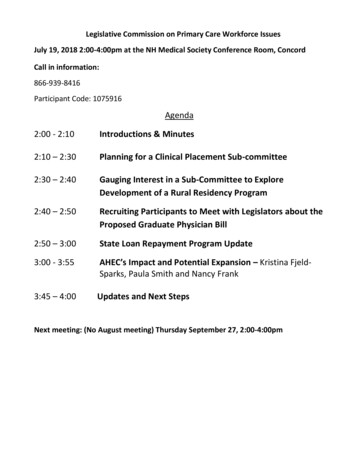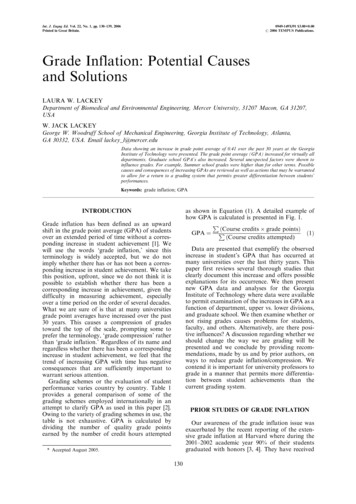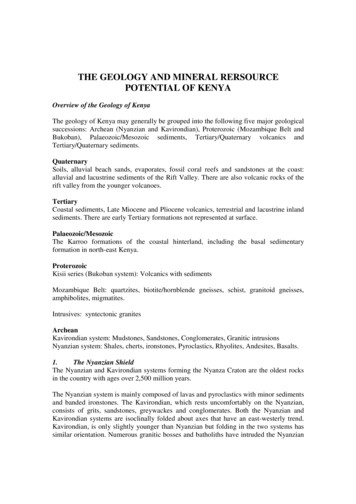
Transcription
Legislative Commission on Primary Care Workforce IssuesJuly 19, 2018 2:00-4:00pm at the NH Medical Society Conference Room, ConcordCall in information:866-939-8416Participant Code: 1075916Agenda2:00 - 2:10Introductions & Minutes2:10 – 2:30Planning for a Clinical Placement Sub-committee2:30 – 2:40Gauging Interest in a Sub-Committee to ExploreDevelopment of a Rural Residency Program2:40 – 2:50Recruiting Participants to Meet with Legislators about theProposed Graduate Physician Bill2:50 – 3:00State Loan Repayment Program Update3:00 - 3:55AHEC’s Impact and Potential Expansion – Kristina FjeldSparks, Paula Smith and Nancy Frank3:45 – 4:00Updates and Next StepsNext meeting: (No August meeting) Thursday September 27, 2:00-4:00pm
State of New HampshireCOMMISSION ON PRIMARY CARE WORKFORCE ISSUESDATE: July 19, 2018TIME: 2:00 – 4:00pmLOCATION: New Hampshire Medical SocietyMeeting MinutesTO:Members of the Commission and GuestsFROM:Danielle WeissMEETING DATE:July 19, 2018Members of the Commission:Laurie Harding – ChairAlisa Druzba, Administrator, Rural Health and Primary Care Section – Vice-ChairStephanie Pagliuca, Director, Bi-State Primary Care AssociationMary Bidgood-Wilson, ARNP, NH Nurse Practitioner AssociationKristina Fjeld-Sparks, Director, NH AHECTrinidad Tellez, M.D., Office of Health EquityBill Gunn, NH Mental Health CoalitionBruce King, CEO, New London HospitalPamela Dinapoli, NH Nurses AssociationGuests:Danielle Weiss, Program Manager, Rural Health and Primary Care SectionPaula Smith, SNH AHECPaula Minnehan, NH Hospital AssociationNancy Frank, Executive Director, NNH AHECCatrina Watson, NH Medical SocietyPeter Mason, Geisel School of Medicine, IDN Region 1Travis Harker, HCAGuy Defeo, MD, Associate Dean for Clinical Education, UNECarrie Nolty, UNH NP Program (for Gene Harkless)Meeting Discussion:2:00 - 2:10Introductions & Minutes2:10 – 2:30Planning for a Clinical Placement Sub-committee- AHEC conducted a feasibility study r/t clinical placement, 4 years ago (Kristina)o Convened academic institutions to determine feasibility and what a program could look likeo Final report cited lack of resources to build and sustain a program including lack of housing Resources aren’t available on the institutional level nor the state level- Gene Harkless volunteered to be co-chair for a potential sub-committee designed to focus work on clinical placementso Need to consider behavioral health- There is now a Centralized Clinical Placement (CCP) software to match students with clinical sites (undergrads)o An online application1
oSystem facilitates scheduling and management of placements between healthcare organizations and educationprogramso Hospitals use it for primary care-based placements Nursing programs use it (i.e. UNH) Mass General uses it for PA studentso It’s a more centralized, streamlined approach No risk of student displacement but there’s some disagreement on whether the system locks out otherstudentso Concern about the CCP Preceptors forge a relationship with students but faculty can't override system so sometimes althoughthe seat is promised, the system won't allow it Seems to lock out APRNs- Integrated Delivery Network (IDN) meetings can bring academic institutions together to talk about the behavioralhealth agenda, including clinical placementso Some challenges that exist are due to supervision, reimbursement, and online programs- Hospital Corporation of America (HCA Portsmouth Residency) acceptance of residentso HCA will have Tufts medical students Students don’t solely come from Tuftso A centralized system would allow students and administrators to understand how many students can beaccepted instead of the current practice which is systems have their own private lists, which are not shared- Commission to convene a small work group to discuss how to proceed with the exploration of developing a “system”for the clinical placement conversations. Chair: Gene Harkless; members: Kerry Nolte, Paula Smith, Guy DeFeo,Nancy Frank, Mary Bidgood Wilson (Add BH providers)o Housing continues to be a barriero Online programs want placements alsoo Update Commission as to next steps in September2:30 – 2:40Gauging Interest in a Sub-Committee to Explore Development of a Rural Residency Program- Possible funding for a TA Center for interested rural health centers?- No specific model is being pursued, everything is on the tableo Could be similar to what Lamprey’s precepting program for NPs u-work/)2:40 – 2:50Recruiting Participants to Meet with Legislators about the Proposed Graduate Physician Bill- A few Commission members to communicate with Rep. Bill Marsh to discuss the Graduate Physician (GP) bill beforeit is brought backo Even with improvements the Commission cannot guarantee to support the billo Before moving forward, it’s essential to understand what’s happening in MO with a similar bill, which waspassedo Primary concerns: will insurance even reimburse for these providers, will there be malpractice coverage,outcome data from MOo “GPs” would work as equivalents to PAs but will actual PAs be bumped out when these providers completedthe expected educational/training course?o The Commission to suggest 2-3 names to Marsh in order to discuss (Joe O’Donnell, Scott Shipman, MaryBidgood Wilson, Guy DeFeo, Paula Minnehan2:50 – 3:00State Loan Repayment Program Update- 2 bills put SLRP funds ino All 410k came in from one and is in systemo 300k from the other and is ino The Primary Care Office (Alisa and Danielle) will continue to ask for 710k in future budget years2
We receive 250k in general funds and- There are 26 on the waitlisto We lost 4 because of the usual reasons (couldn’t wait/took another job/another state)o 21 providers to begin service on Oct 1o 5 providers were granted an repayment extension (first time in 3 years)- Possible coordination of loan repayment with the Integrated Delivery Network (IDNs) that have loan repayment fundsto spend – IDNs 1, 3, 5 and 6o We run the program for them but they send along the providers In order to participate in the State Loan Repayment Program (SLRP), the provider has to meet theeligibility criteria, including licensureo We would structure the program so IDNs can distribute funds in 2 years, as is required by their funders (CMS)3:00 - 3:55AHEC’s Impact and Potential Expansion – Kristina Fjeld-Sparks, Paula Smith and Nancy FrankRefer to the PowerPoint “NH Area Health Education Center Network.”3:45 – 4:00Updates and Next StepsNext meeting: (No August meeting) Thursday September 27, 2:00-4:00pm3
New Hampshire Area HealthEducation Center NetworkLegislative Commission for Primary Care WorkforceThursday, July 19, 2018Paula Smith, EdD, MBADirector, Southern NH AHECLamprey Health CareRaymond, NHNancy Frank, MPHChief Executive OfficerNorth Country Health ConsortiumDirector, Northern NH AHECLittleton, NHKristina Fjeld-Sparks, MPHDirector, NH AHECThe Dartmouth Institute forHealth Policy & Clinical PracticeLebanon, NH
National AHEC Program Developed by Congress in 1971 to recruit, train and retain a healthprofessions workforce committed to rural and underservedpopulations Helps bring the resources of academic medicine to address localcommunity health needs Supports a strong AHEC Network that has the ability to creativelyadapt national initiatives to help address local and regionalhealthcare issues.
AHEC IS A ROBUST NATIONALNETWORKThe national AHEC network consists of more than300 AHEC program offices and centers, serving over85% of the counties in the United States, with morethan 45 years of experience
AHEC PROGRAM With funding from Health Resources ServicesAdministration, Bureau of Health WorkforceAHECs support:EducationClinical CareWorkforce DevelopmentCommunity Health/Population Health
NH AHEC PROGRAM Established in 1997 Structure in NH is one program office and twocenter officers:– Program office: The Dartmouth Institute forHealth Policy and Clinical Practice (Lebanon NH)– Center office: Northern NH AHEC at North CountryHealth Consortium (Littleton NH)– Center office: Southern NH AHEC at LampreyHealth Care (Raymond NH)
NH AHEC MissionTo develop innovative approaches thatmeet the health needs of diversepopulations by enhancing the knowledge,skills, and capacity of the health careworkforce and New Hampshirecommunities.
NH AHEC PROGRAM Part of the national network Bridge academic resources to communities Network collaborates on statewide, regional,and national initiatives. Assess health care workforce educational needs Each AHEC office seeks additional funding torespond to local community needs
NH AHEC Program FundingHRSA – Limited FundingOther Leveraged Funding – AHEC InfrastructureNecessary to Support Resources Brought Into NH HRSA/FORHP SAMHSA Local Foundations State of New Hampshire OTHERS
Examples of NH AHEC NetworkActivitiesHealth Careers Pipeline ProgramsTraining of health professions studentsContinuing education for health care providers and public health workforceCommunity Health Worker TrainingCommunity Health Worker ProgramChronic Disease Self Management/Diabetes Self ManagementPublic Health Network/Substance Misuse Prevention NetworkCultural and Interpretation trainingContinuing education to promote integration of behavioral health/primarycare/oral health NH SBIRT IPE Collaborative New Initiative: AHEC Scholars
Re-Design of the National AHECProgram Aligning the AHEC Network with HHS/HRSAStrategic Priorities HRSA Goal: Strengthen the Health Workforce– Distribution of Health Professionals– Diversity of Health Professionals– Practice Transformation
Thank you! Nancy Frank, MPHCEO, North Country HealthConsortium, Northern NH AHECnfrank@nchcnh.org Kristina Fjeld-Sparks, MPHDirector, NH AHEC Program OfficeKristina.E.Fjeld-Sparks@Dartmouth.edu Paula Smith, MBADirector, Southern NH AHECpsmith@snhahec.org
Jul 19, 2018 · Bidgood Wilson, Guy DeFeo, Paula Minnehan 2:50 – 3:00 State Loan Repayment Program Update - 2 bills put SLRP funds in o All 410k came in from one and is in system o 300k from t











